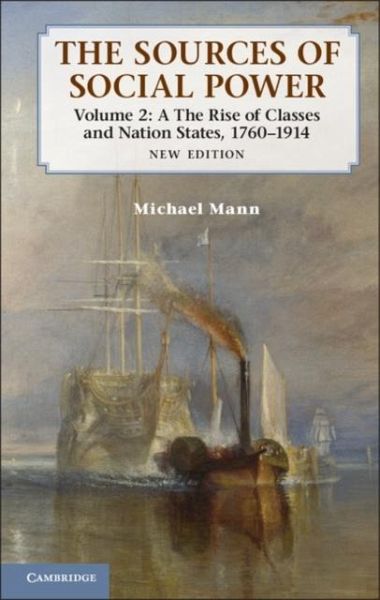
Sources of Social Power: Volume 2, The Rise of Classes and Nation-States, 1760-1914 (eBook, PDF)

PAYBACK Punkte
14 °P sammeln!
Distinguishing four sources of power in human societies - ideological, economic, military and political - The Sources of Social Power traces their interrelations throughout human history. This second volume deals with power relations between the Industrial Revolution and the First World War, focusing on France, Great Britain, Hapsburg Austria, Prussia/Germany and the United States. Based on considerable empirical research, it provides original theories of the rise of nations and nationalism, of class conflict, of the modern state and of modern militarism. While not afraid to generalize, it als...
Distinguishing four sources of power in human societies - ideological, economic, military and political - The Sources of Social Power traces their interrelations throughout human history. This second volume deals with power relations between the Industrial Revolution and the First World War, focusing on France, Great Britain, Hapsburg Austria, Prussia/Germany and the United States. Based on considerable empirical research, it provides original theories of the rise of nations and nationalism, of class conflict, of the modern state and of modern militarism. While not afraid to generalize, it also stresses social and historical complexity. Michael Mann sees human society as 'a patterned mess' and attempts to provide a sociological theory appropriate to this, his final chapter giving an original explanation of the causes of the First World War. First published in 1993, this new edition of Volume 2 includes a new preface by the author examining the impact and legacy of the work.
Dieser Download kann aus rechtlichen Gründen nur mit Rechnungsadresse in A, B, BG, CY, CZ, D, DK, EW, E, FIN, F, GR, HR, H, IRL, I, LT, L, LR, M, NL, PL, P, R, S, SLO, SK ausgeliefert werden.













